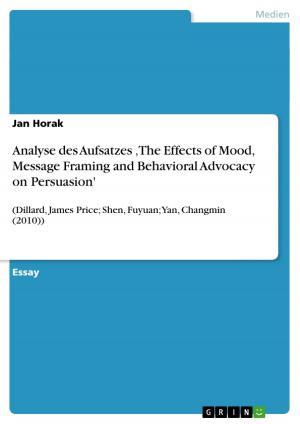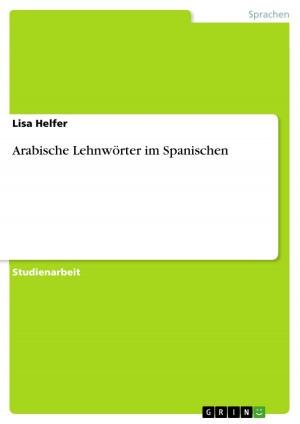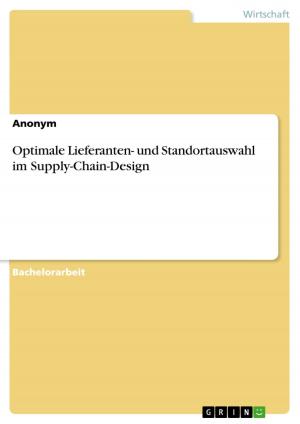The Alfredian Educational Reform and Translation Program
Nonfiction, Reference & Language, Study Aids, ESL, Foreign Languages| Author: | Anna Poppen | ISBN: | 9783656463535 |
| Publisher: | GRIN Verlag | Publication: | July 19, 2013 |
| Imprint: | GRIN Verlag | Language: | English |
| Author: | Anna Poppen |
| ISBN: | 9783656463535 |
| Publisher: | GRIN Verlag |
| Publication: | July 19, 2013 |
| Imprint: | GRIN Verlag |
| Language: | English |
Seminar paper from the year 2008 in the subject English - Pedagogy, Didactics, Literature Studies, grade: 1,0, University of Göttingen, language: English, abstract: King Alfred, who ruled the kingdom of Wessex from 871 to 899, is the only English King, who came to be known as the Great. Today he is remembered and glorified as a great Christian king, who defeated the Vikings, who kept invading and plundering England in the second half of the 9th century. But apart from great military and political achievements, Alfred also stands for educational reform and he is credited for having encouraged the advancement of the Old English language in what was to become the Anglo-Saxon kingdom. What scholars know about Alfred and his actions today is mostly derived from four different sources. Most important is a biography of King Alfred called The Life of King Alfred. This text was written in 893 by Asser, a contemporary of the king. In this biography Asser states that he used to be a monk at St David's, a monastery in Dyfed in Wales, until King Alfred asked him to serve as one of his scholars and advisors. The biography deals with King Alfred's life starting with his birth, but ending abruptly, leaving out the king's actions in the 890s and his death. When dealing with Asser's biography of King Alfred, it is important to keep in mind that the text is not an objective and accurate work, but rather a 'celebration of Alfred's greatness for the edification of multiple audiences' . The second source is the Anglo-Saxon Chronicle, which was written by one or more anonymous authors. This text deals with the political and military developments during Alfred's reign and it contains some information about the king himself. The origin of the Anglo-Saxon Chronicle and its role within the Alfredian translation program will be dealt with later in this work. The third source is the texts from King Alfred's translation program, which were a very important part of his educational reforms. The translation program is a topic that has caused many debates among scholars as will be seen in the course of this work. However, the different writings of King Alfred and the scholars at his court provide a lot of useful information on the king's thoughts and plans. Lastly, coins and archaeology provide important information about King Alfred the Great and his times as well. Since there are quite a lot of contradictory sources providing information on the life of King Alfred the Great, scholars have created quite different and controversial pictures of one and the same historical figure.
Seminar paper from the year 2008 in the subject English - Pedagogy, Didactics, Literature Studies, grade: 1,0, University of Göttingen, language: English, abstract: King Alfred, who ruled the kingdom of Wessex from 871 to 899, is the only English King, who came to be known as the Great. Today he is remembered and glorified as a great Christian king, who defeated the Vikings, who kept invading and plundering England in the second half of the 9th century. But apart from great military and political achievements, Alfred also stands for educational reform and he is credited for having encouraged the advancement of the Old English language in what was to become the Anglo-Saxon kingdom. What scholars know about Alfred and his actions today is mostly derived from four different sources. Most important is a biography of King Alfred called The Life of King Alfred. This text was written in 893 by Asser, a contemporary of the king. In this biography Asser states that he used to be a monk at St David's, a monastery in Dyfed in Wales, until King Alfred asked him to serve as one of his scholars and advisors. The biography deals with King Alfred's life starting with his birth, but ending abruptly, leaving out the king's actions in the 890s and his death. When dealing with Asser's biography of King Alfred, it is important to keep in mind that the text is not an objective and accurate work, but rather a 'celebration of Alfred's greatness for the edification of multiple audiences' . The second source is the Anglo-Saxon Chronicle, which was written by one or more anonymous authors. This text deals with the political and military developments during Alfred's reign and it contains some information about the king himself. The origin of the Anglo-Saxon Chronicle and its role within the Alfredian translation program will be dealt with later in this work. The third source is the texts from King Alfred's translation program, which were a very important part of his educational reforms. The translation program is a topic that has caused many debates among scholars as will be seen in the course of this work. However, the different writings of King Alfred and the scholars at his court provide a lot of useful information on the king's thoughts and plans. Lastly, coins and archaeology provide important information about King Alfred the Great and his times as well. Since there are quite a lot of contradictory sources providing information on the life of King Alfred the Great, scholars have created quite different and controversial pictures of one and the same historical figure.















